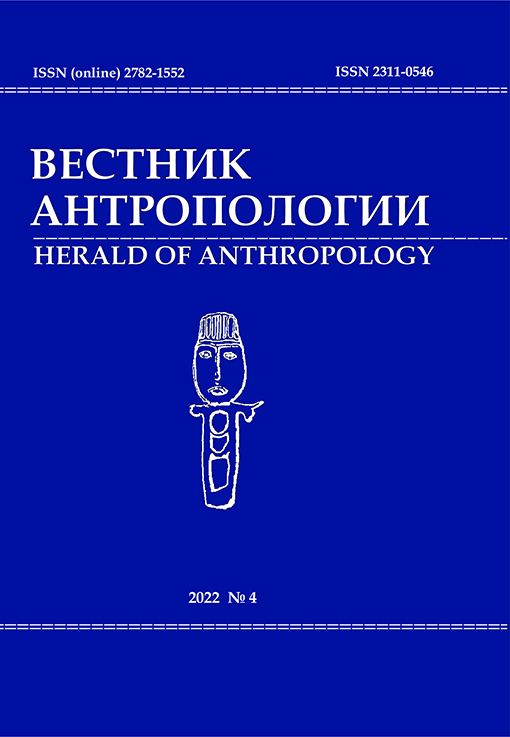Kamboj of North-West India: Ethnic History, Ethno-Cultural Profile and Contemporary Identity
DOI: 10.33876/2311-0546/2022-4/203-217
Keywords:
Kamboj, Punjab, Pakistan, Sikhism, UdasiAbstract
The Kambojas is an ethnic group consisting of a few dozens of castes partaking unique culture and beliefs. The Kambojas used to play significant role in West Punjab’s history. Following the post-partition genocide in late 1940s the majority of them migrated to India. The Kambojas are still in search of their identity, which is expressed in attempts to trace their origins to Kshatriya clans mentioned in Mahabharata and to medieval Rajput dynasties. The Kambojas also centre their ethnic religious patterns around worship of an XVIII century saint Baba Bhuman Shah. The Kambojas have not received sufficient attention in anthropological and ethnographic studies. In Russian, this is the first attempt to analyze the community’s identity in contemporary India, to describe its social structure, household management and rituals. The paper is based on materials collected by the author in Dera Baba Bhuman Shah (Haryana) from 2012 till 2021 and on his personal experience of interactions with the Kambojas.





















